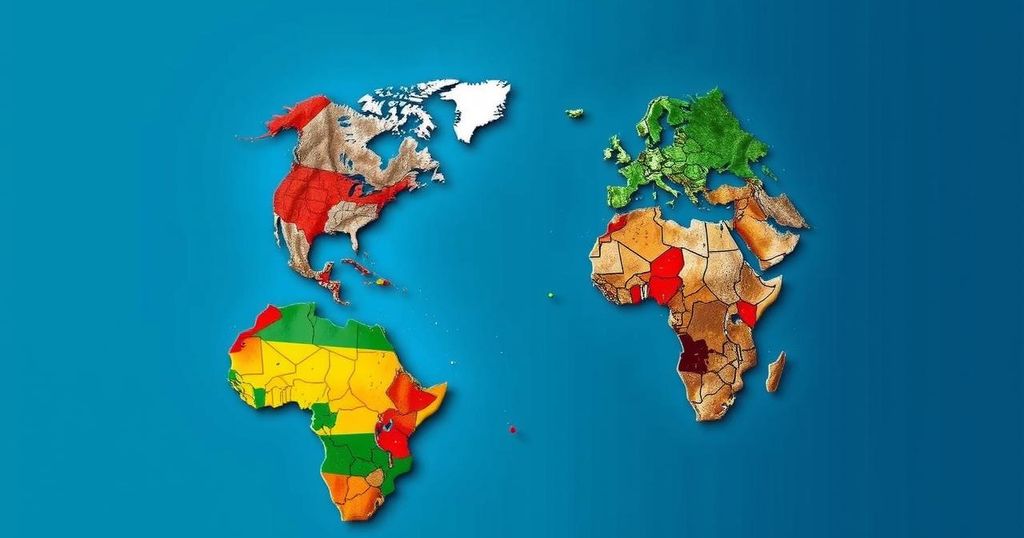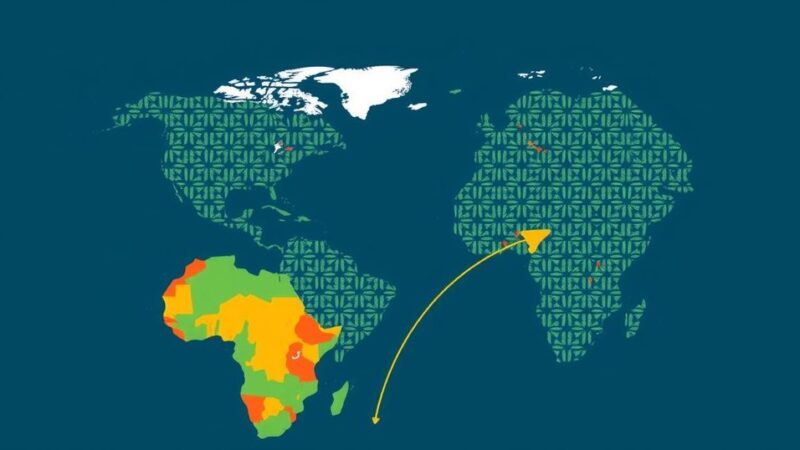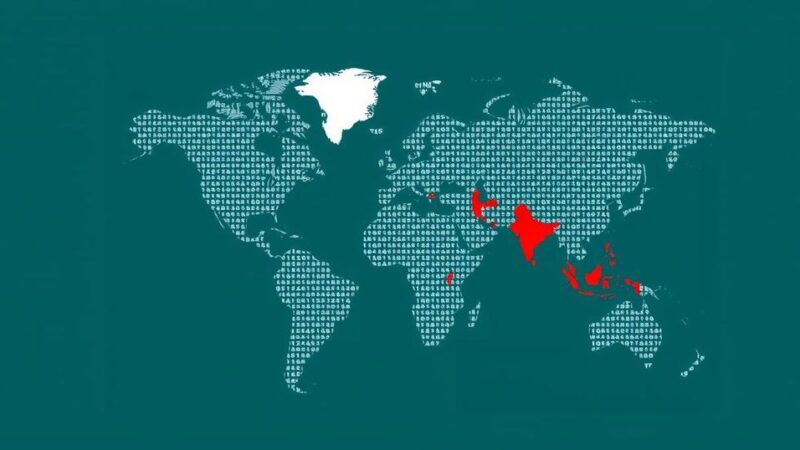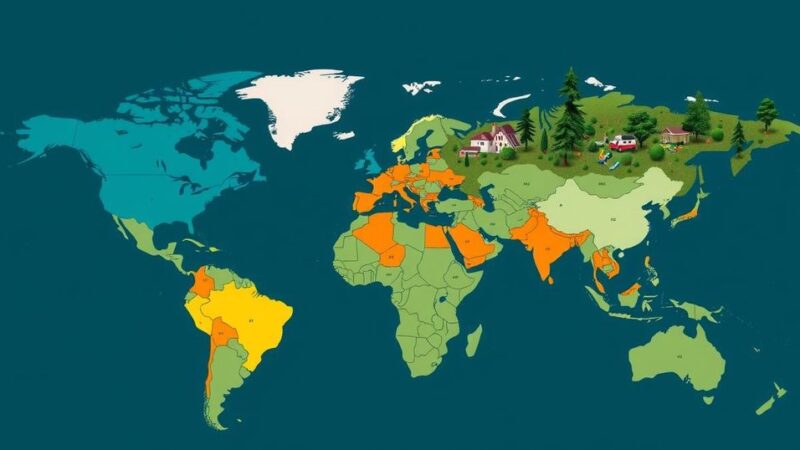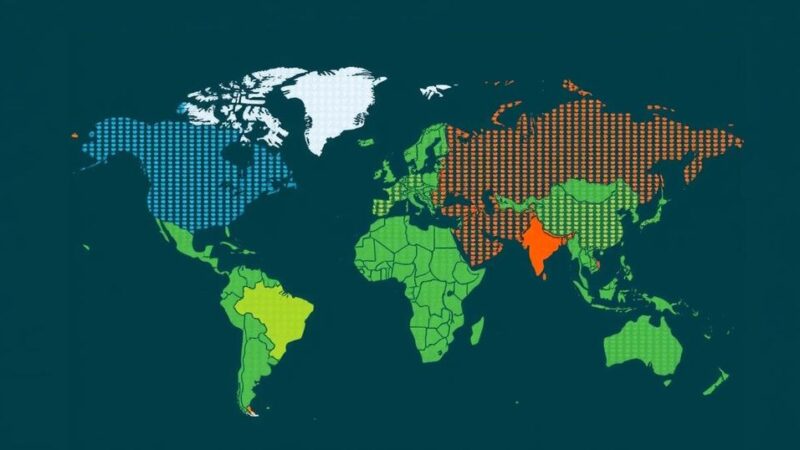Developing nations have rejected the recently agreed upon $300 billion climate finance deal, claiming it is insufficient for addressing the escalating climate crisis. Criticism arose immediately following the agreement during COP discussions in Azerbaijan, where poorer nations argued for more substantial funding to combat climate disasters. Despite this increase from previous commitments, many attendees expressed disappointment over the lack of adequate support for vulnerable populations facing the impacts of climate change.
Baku (AFP) – Following intense negotiations, an agreement was reached among nearly 200 nations regarding climate finance, but this accord was met with strong criticism from developing countries. Poorer nations, particularly vulnerable to climate disasters, dismissed the promised $300 billion annual funding from wealthy nations as grossly inadequate. The negotiations took place in a sports stadium in Azerbaijan, where delegates expressed their discontent immediately after the deal was struck, emphasizing that the funding was insufficient to tackle the pressing climate crisis.
India’s delegate, Chandni Raina, articulated the dismay felt by many developing nations, stating, “It is a paltry sum. This document is little more than an optical illusion and will not address the enormity of the challenge we all face.” Similarly, Jiwoh Abdulai, Sierra Leone’s climate minister, deemed the agreement a sign of “lack of goodwill” from developed countries, reflecting disappointment in the insufficient outcome. Tina Stege, climate envoy for the Marshall Islands, noted that while the agreement was not ideal, it did represent a starting point for future discussions.
Various influential developing nation blocs, including the Alliance of Small Island States and the African Group of Negotiators, echoed these sentiments of dissatisfaction. The negotiations highlighted the ongoing struggle between wealthy nations responsible for climate change and poorer countries, which are disproportionately affected yet least responsible for the environmental crisis. The need for a more significant financial commitment was evident, with many developing nations initially advocating for a yearly financial input of at least $500 billion.
UN climate chief Simon Stiell acknowledged the shortcomings of the agreement, emphasizing that the outcome did not meet the needs of all participants. Despite the criticisms and the call for greater funding, the final deal commits developed nations to provide a minimum of $300 billion annually by 2035, which is an increase from the previously pledged amount of $100 billion but remains insufficient according to experts. The increased funding is designed to support developing countries in transitioning to greener economies and better preparing for climate-related challenges. As discussions continue, many stress that researchers estimate developed nations should contribute approximately $390 billion annually to adequately address the needs of developing countries without including China.
Despite the disappointing outcome, hope remains that COP29 could mark the beginning of an era of improved climate finance. However, the political dynamics within developed nations, particularly amid recent shifts towards right-wing politics, add layers of complexity to international climate relations. The challenge ahead lies not just in increasing financial commitments but also in ensuring that those funds adequately support vulnerable nations facing the brunt of climate change impacts.
The negotiation of climate finance has long been a contentious issue at international conferences like COP. Developing nations argue that they suffer the most from climate change, despite contributing the least to its causes, prompting calls for accountability from developed nations. The $300 billion financial commitment made in Baku, while an increase from past pledges, is viewed as insufficient given the escalating frequency and intensity of climate disasters affecting poorer nations. Key players, including the United Nations, are striving to align financial contributions with the urgency of climate action required globally. This context highlights the ongoing global struggle to balance economic realities with the urgent need for climate justice, particularly among those least equipped to cope with the severe impacts of climate change.
In conclusion, the recent climate deal negotiated in Baku has faced widespread condemnation from developing nations, which view the $300 billion commitment as wholly inadequate. The criticisms highlight a larger disparity in climate finance negotiations, where poorer nations continue to bear the brunt of the impacts of climate change. While the agreement represents a step forward, many believe it fails to meet the challenge of climate change adequately. Moving forward, a significant shift in funding priorities is necessary to ensure the most vulnerable nations receive the support they need to combat climate adversities.
Original Source: www.france24.com
